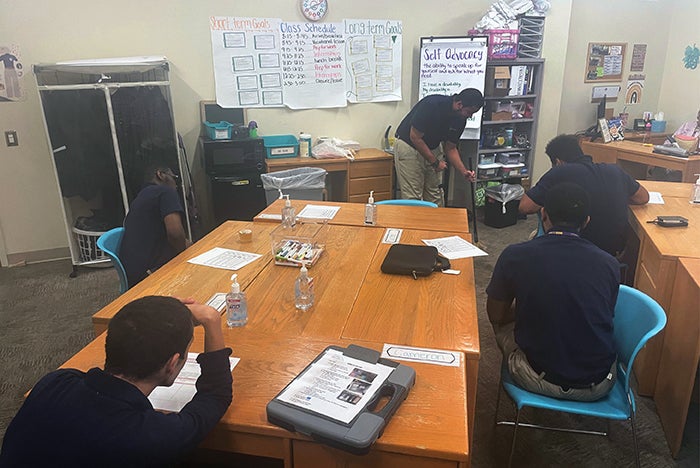Health care system paves career path with internship program

Interns at ECU Health Medical Center learn valuable work skills vital to health care operations.
Image courtesy of ECU Health Medical Center
Project SEARCH is a one-year, health care facility-based program that helps young adults with disabilities develop skills for employment. Founded in the mid-1990s and based at Cincinnati Children’s Hospital Medical Center, Project SEARCH now operates more than 700 programs worldwide, including one at ECU Health Medical Center in Greenville, N.C.
It provides internships for students in their final year of high school or between the ages of 18 and 21, offering real-world training and job coaching. Participants leave the program fully prepared for the workforce with marketable skills.
Lyndsey Joyner, a former special education teacher in an autism classroom at a local high school, is now the Project SEARCH program instructor at ECU.
“We start every day with 45 minutes of employability skills,” Joyner explains, “covering topics like workplace safety, financial literacy and communication.” These lessons are crucial for students to successfully navigate their internships and future jobs. They learn specific job-related tasks, such as organizing and stocking materials, cleaning and using technology for basic administrative services like visitor check-in systems.
“We tailor each internship based on the individual’s abilities,” Joyner adds, noting that students are not placed in positions requiring tasks beyond their capabilities, such as operating complex machinery. Interns work in various hospital departments, including endoscopy, central services and cafeterias. Each student is paired with a mentor who ensures they are fully integrated into the hospital environment.
The transition from intern to professional can be challenging, but Project SEARCH offers comprehensive support, including a two-week orientation.
“We learn how to navigate the hospital, write resumes and handle interviews,” Joyner says, and she proudly shares stories of students who now work at the hospital or other local businesses. Two former interns have even returned to serve as mentors to current students — a “full-circle moment,” Joyner notes, as they now help their peers through the same process they once experienced.

